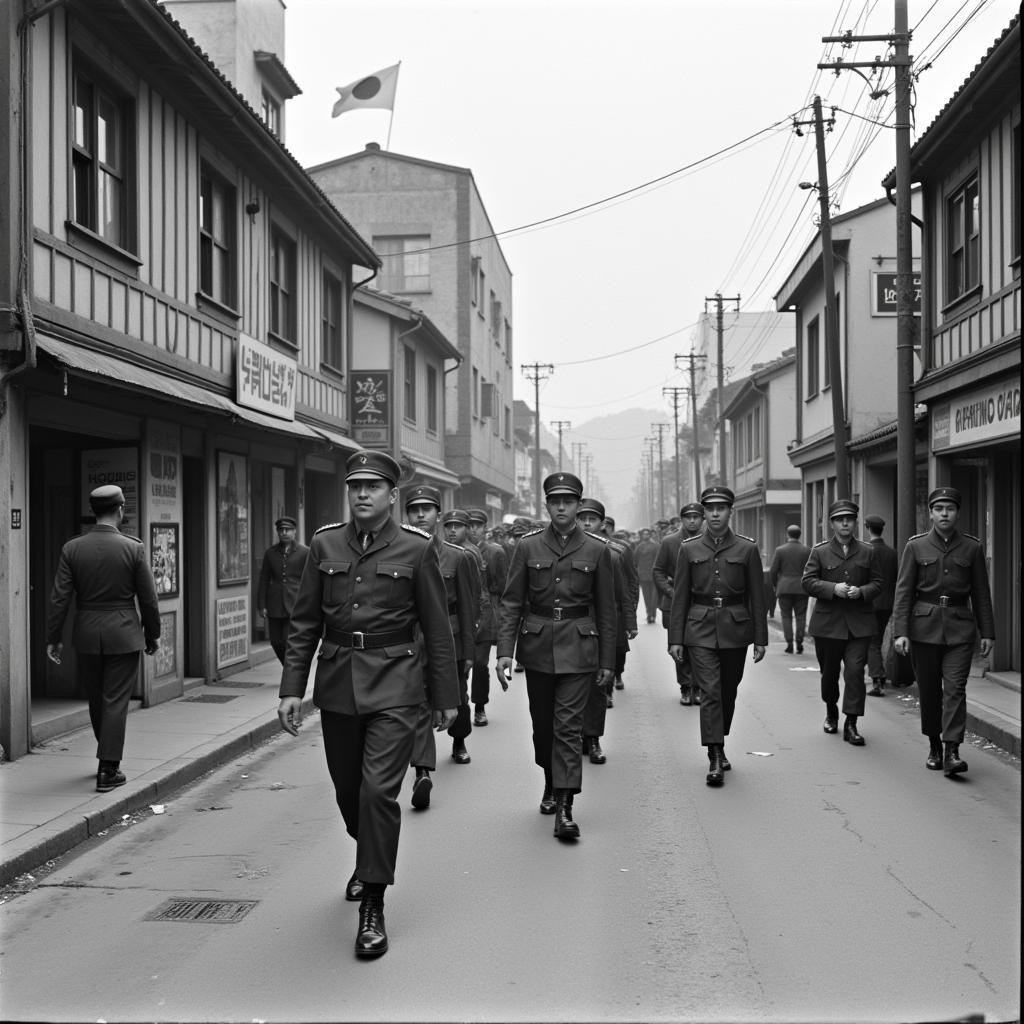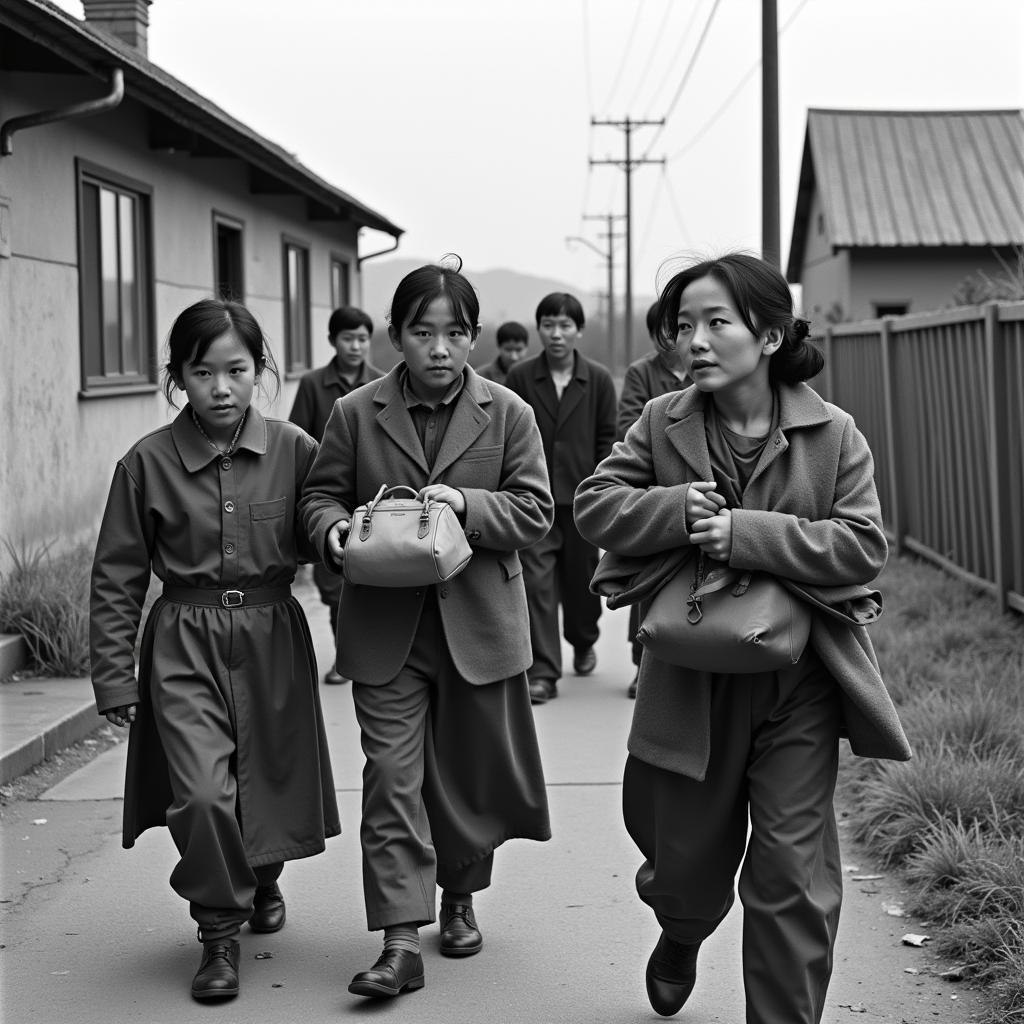The phrase “Korea Vs Japan War” often evokes images of fierce battles and deep-seated rivalry. While it’s true that the relationship between Korea and Japan has been marked by conflict throughout history, it’s essential to delve deeper than just the surface level. Understanding the nuances of these historical events and their lasting implications is crucial to comprehending the dynamics of East Asia today.
Beyond the Battlefield: Examining the Roots of Conflict
The roots of the “Korea vs Japan war” narrative stretch back centuries, intertwining with power struggles, cultural clashes, and ambitions for regional dominance. To truly grasp the complexity, we must explore the historical context:
-
Early Encounters (16th-19th Centuries): The Imjin War (1592-1598), where Japan attempted to invade Korea via the Joseon Dynasty, left a scar on Korean memory. Despite valiant Korean resistance, supported by Ming Dynasty China, this period instilled a deep sense of mistrust and resentment towards Japan.
-
Japanese Imperialism (Late 19th-Early 20th Centuries): Japan’s rapid modernization and expansionist policies in the late 19th century led to the colonization of Korea in 1910. This period, marked by brutal oppression and the suppression of Korean culture, remains a deeply sensitive issue today.
 Japanese Occupation of Korea
Japanese Occupation of Korea
- World War II and its Aftermath: The Asia-Pacific War (World War II) further exacerbated tensions. Korea, under Japanese rule, was forced to contribute resources and manpower to the Japanese war effort. The war’s end in 1945 brought about Korea’s division into North and South, mirroring the geopolitical tensions of the Cold War.
The Korean War (1950-1953): A Proxy War with Global Implications
While not directly a “Korea vs Japan war,” the Korean War (1950-1953) had indirect yet significant implications for both nations. The conflict, primarily between North Korea (supported by China and the Soviet Union) and South Korea (supported by the United Nations, primarily the United States), had no official Japanese military involvement.
However, Japan served as a crucial logistical hub for the United Nations forces. Its industries benefited from wartime production, marking the beginning of its post-war economic recovery. Moreover, the war solidified Japan’s strategic importance to the United States in the Asia-Pacific region.
 Korean War Refugees
Korean War Refugees
Addressing the Past, Navigating the Present
The legacy of historical conflict continues to influence relations between Korea and Japan. While diplomatic and economic ties have improved significantly since the mid-20th century, issues like wartime atrocities, apologies, and territorial disputes remain points of contention.
-
Seeking Reconciliation and Justice: Efforts at reconciliation have been made, but the road to healing remains complex. Many Koreans demand a full and sincere apology from Japan for the suffering inflicted during the colonial period. Japan, while acknowledging past wrongdoings, often struggles to address these issues to the satisfaction of many Koreans.
-
Economic Ties and Geopolitical Realities: Despite historical tensions, Korea and Japan are major economic partners. They share common security concerns, particularly regarding North Korea and China’s growing influence. Navigating this delicate balance between historical grievances and present-day realities remains a challenge.
Moving Forward: Towards a Shared Future
The “Korea vs Japan war” narrative, though rooted in historical conflict, is not the sole lens through which we should view the relationship between these two nations. Acknowledging the complexities of the past is essential, but fostering dialogue, understanding, and cooperation is crucial for a peaceful and prosperous future for both Korea and Japan.
FAQ:
1. When was the last time Korea and Japan were at war?
While there have been historical conflicts, the last direct military confrontation between Korea and Japan was the Imjin War, which ended in 1598.
2. How has the “Korea vs Japan war” narrative impacted popular culture?
Historical dramas, films, and literature in both countries often explore the themes of conflict, colonialism, and reconciliation, reflecting the enduring impact of history on contemporary societies.
3. What are some current areas of cooperation between Korea and Japan?
Despite historical challenges, Korea and Japan collaborate on various fronts, including trade, technology, and cultural exchange programs. They also share common security concerns in the region.
[belgium in europe vs belgium in africa meme]
Need More Information?
For inquiries and assistance, contact us at:
Phone: 02838172459
Email: truyenthongbongda@gmail.com
Address: 596 Đ. Hậu Giang, P.12, Quận 6, Hồ Chí Minh 70000, Việt Nam.
Our dedicated customer support team is available 24/7 to assist you.